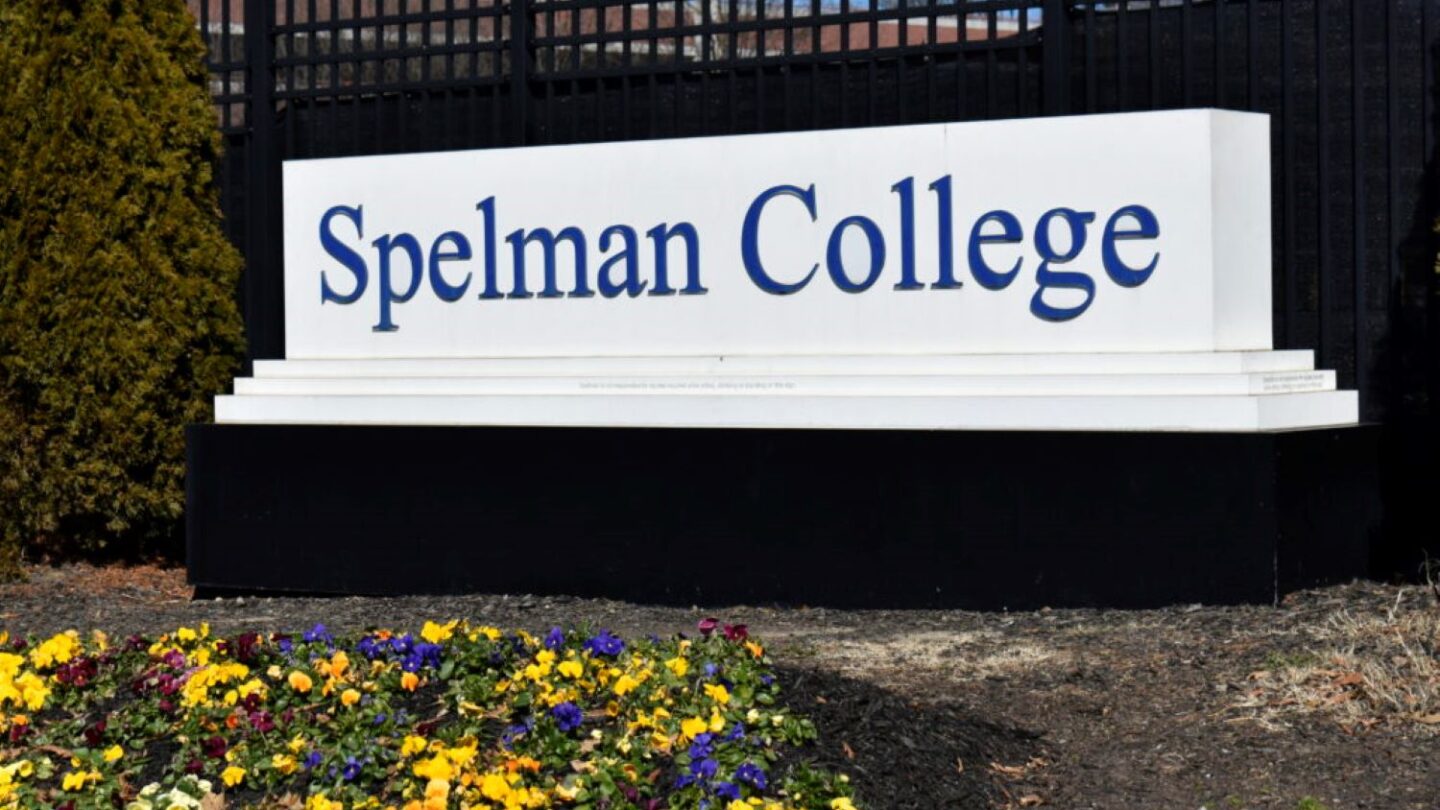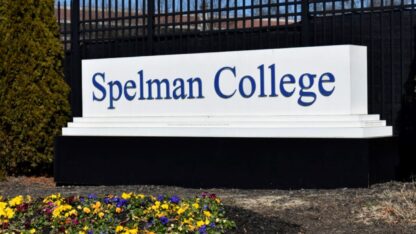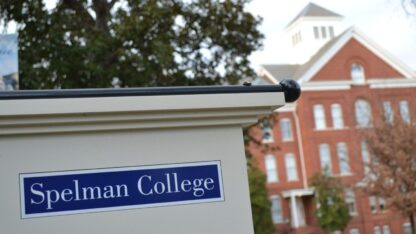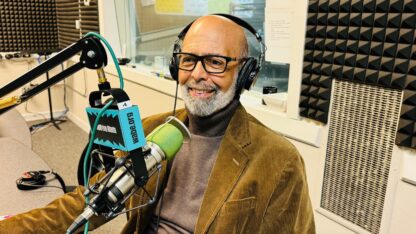Early on an unforgivingly cold January morning, hundreds of young women rolled out of bed and packed the Sisters Chapel at Spelman College to capacity.
The students were told that the morning assembly was a celebration of a landmark; 2024 marks 100 years since the Spelman Baptist Seminary became Spelman College. But the gathering was also the setting for a surprise announcement.
“As a student, I experienced the powers of this historic institution and how it transforms the futures of talented young women,” started Lovette Russell, a Spelman graduate from the class of 1983 and the College’s board chair.
“What I am sharing with you today is a major step to ensure more young women can achieve their dreams at Spelman College…our long-serving board trustee Ronda Stryker and her husband William [Johnston] have decided to donate… $100 million.”
The students’ ovation warmed the chapel with gratitude.
Stryker is Spelman’s longest-serving trustee, at 27 years of service.
The College says the gift is the largest single donation it has ever received and the largest ever made to a historically Black college or university (HBCU).
Three-quarters of the donation will be scholarship money for current and future Spelman students. The remaining funds will be used to develop an academic program in public policy and democracy, improve and expand campus dormitories and for discretionary spending.
Zoe Shepard is a sophomore at Spelman and the College’s student trustee. She has known about the donation since last year and said she was excited to see how the money would be applied.
“I know a lot of people who would benefit from the Spelman experience… Who sometimes can’t because of financial reasons,” she said. “Obviously, as a student, I really care about the scholarships…but I wasn’t aware of how important it also was to our leadership and the people higher up.”
Kyla Emory – Spelman’s sophomore class president – also said it is exciting to know this money will allow more women like her to attend Spelman, especially because of the share set aside for student housing.
“Sometimes there’s not enough space for all of those first-year students to live on campus,” she said. “And that’s unfortunate because the first year experience—to be living in a dorm and having your sisters. We have chants, hand signs and things for our freshman dorms. That’s an integral part of the Spelman experience.”
For board chair Lovette Russell, this money is a signal for the rest of the nation.
“We, as Black people, we know and understand the value of HBCUs,” she said. “It’s just getting other people to see that.”
“Since we are so underfunded and our endowments are a lot smaller, when you give $100 million to Spelman, it means something much more significant than giving $100 million to Harvard,” she continued.
Harvard was also an instructive foil for Michael Lomax, CEO of the United Negro College Fund (UNCF).
The UNCF recently received a $100 million donation from Lilly Endowment Incorporated. The money will be used to kickstart a pooled endowment fund for UNCF’s 37 member HBCUs. Each school will have a $10 million share of the pot.
Four Georgia HBCUs set to grow their endowment by $10 million – Juma Sei, WABE News
“Harvard has a $50-billion-dollar endowment,” Lomax said. “You add up all of the endowments of all 102 historically Black colleges, and it’s less than one-tenth that amount.”
“The marker of wealth for colleges and universities is the endowment,” he continued. “Just as we focus on closing the wealth gap for Black individuals and the Black community, we also have to think about closing the wealth gap for Black institutions.”
Even then, there are also funding gaps within the HBCU network.
George French is the President of Clark Atlanta University, the largest UNCF member HBCU. Before he was President of Clark Atlanta, French was President of Miles College, a smaller HBCU in Alabama.
As French reflected on the donation to the UNCF and who would benefit most from that kind of money, he said he thinks of smaller HBCUs first – not the group of well-known schools that are often targeted in historic bouts of philanthropy.
“I’ve been on both ends of this HBCU experience,” he said. “Clark Atlanta… we’re good. But how do I help the Miles Colleges and the Oakwoods and the Stillmans?”
UNCF CEO Michael Lomax said he knows that any private donation – even one for $100 million – is just a start in helping Black colleges catch up to their predominantly white peers.
But, “The journey of a thousand miles begins with one step,” he said. “I am a deep believer in incremental improvements.”









